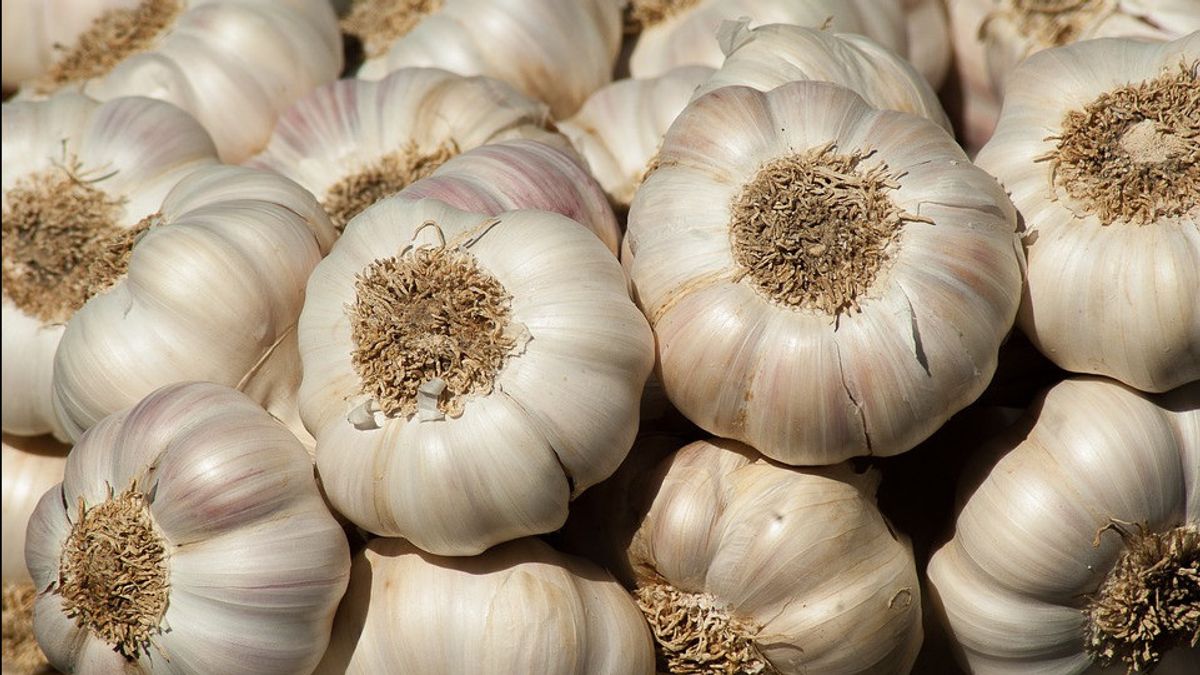JAKARTA - President Joko Widodo's message at the State Palace, last Wednesday, March 4, that the availability and adequacy of staples prior to the fasting month and Eid seems less clear to his ministers. Only 50 days of the fasting month are left, but the stock of imported garlic and fruit on the market is starting to worry.
The slowness in granting Recommendations for Import of Horticultural Products (RPIH) from the Ministry of Agriculture (Kementan) is considered as insensitivity to the interests of citizens and gives an impression of 'sugar cane pickiness' for the strong interests of political parties.
"We complained about it from yesterday. Why does the new Minister work like this? In the end people suspect there (political party interests). The minister is a party person," said the head of the National Horticultural Association, Anton Muslim Arbi, in a written statement quoted as saying, Sunday March 8.
According to Anton, the slowness of the licensing process has made the stock of garlic depleted and the price will increase. The licensing process was protracted, which actually made Anton suspect that there was a political element behind it.
He admitted that he had emphasized that party people should not be placed in strategic ministerial posts. Anton is of the opinion that the matter of permits is nothing new. Meanwhile, the business world needs certainty. "How come the bureaucracy is like this? If everything is okay, please process it so that [the permit] can quickly come out," he complained again.
The same complaint was voiced by the Indonesian Onion and Tuber Vegetable Association (Pusbarindo). The association asked the government to immediately issue a new Import Permit (SPI) and Horticultural Product Import Recommendation (RIPH) so that the process and time for goods to arrive in Indonesia can be faster. Of the many Association members who applied for RIPH and SPI, only one has received an import permit to date.
Whereas it should have been, the RIPH from the Ministry of Agriculture could come out even faster. Especially for companies whose administrative processes are clean and clear, and have clear track records.
"From the SPI published on February 26, there were 25,800 tons, only one member of Pusbarindo who received SPI, namely only 800 tons, approximately 3 percent," complained Valentino as chairman II, the Association of Indonesian Onion and Tuber Vegetable Businesses (Pusbarindo).
That amount, continued Valentino, is not enough. Because according to his calculations, the national demand per month is around 47 thousand tons, then there are several potential increases during fasting and before Eid. "Approximately the need until May (Eid) is 160 thousand tons. There is a stock shortage of 100 thousand tons," he said.
Meanwhile, according to an economic observer from Unika Atma Jaya, Rosdiana Sijabat, the government should be more responsive to matters of staples prior to fasting and Eid.
"This is not a seasonal problem. We know that so far the domestic supply of garlic is only 5-10 percent of domestic demand," said Rosdiana.
He also regretted the lengthy process between the Ministry of Agriculture (Kementan) in issuing RIPH, so that the Ministry of Trade (Kemendag) could issue Import Approval Letters (SPI) to selected companies to import more quickly.
"The process needs to be accelerated. The slightest delay has made prices at the level of importers, distributors and small traders up to the community," he concluded.
On the other hand, the Minister of Trade (Mendag) Agus Suparmanto admitted that his party did not directly issue all garlic SPIs. Trade Minister Agus revealed that he was careful because there were several new companies participating in the garlic import process.
This is different if the importer is an old company that always participates in the garlic import process with a track record of importing.
"We will check again, especially if we have to check new companies. So if there are references to them, we will also see their performance. So yesterday we published some but still we will check until they are complete, especially new companies," he explained.
The Director General of Foreign Trade of the Ministry of Trade, Indrasari Wisnu Wardhana, at the Office of the Coordinating Ministry for Economic Affairs, Jakarta, Friday, March 6, explained that his party would only issue SPI after submissions from garlic importers who had received RIPH.
"RIPH just came out on February 7. Look, they get RIPH not necessarily apply for SPI directly," he explained.
He said that there is no SPI for garlic that will be published again in the near future, because it takes into account domestic needs and submissions from importers.
The English, Chinese, Japanese, Arabic, and French versions are automatically generated by the AI. So there may still be inaccuracies in translating, please always see Indonesian as our main language. (system supported by DigitalSiber.id)









